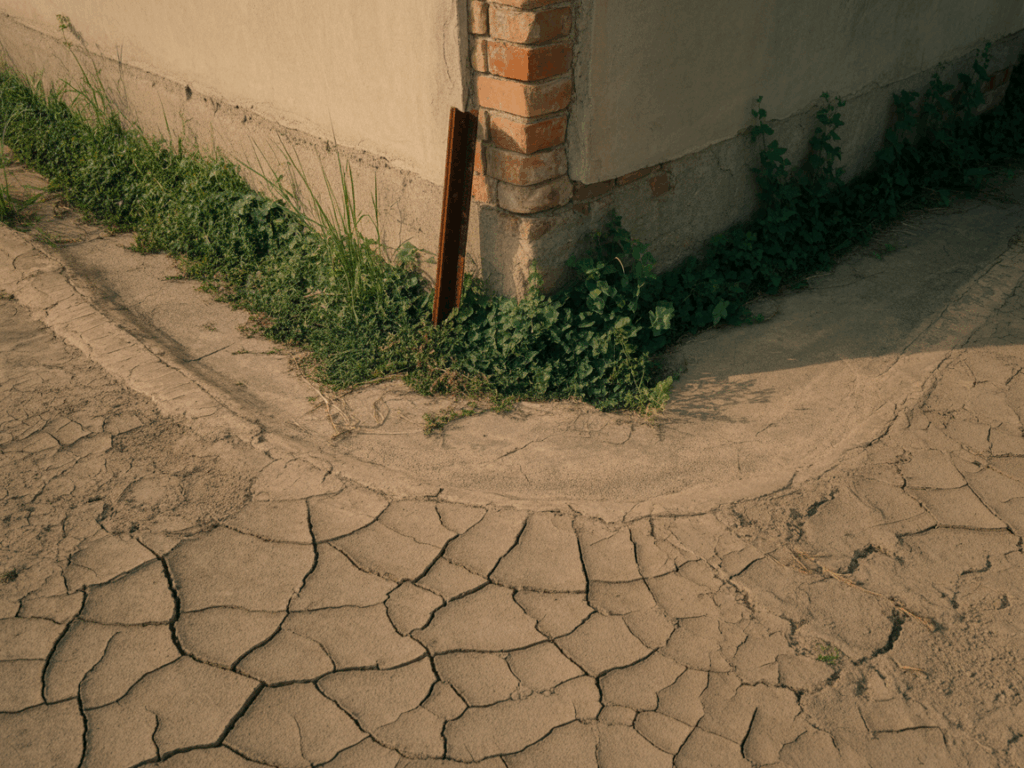Post-Summer Soil Shifts & Foundation Damage
Why bottom shifts after the summer
Contents
South California summers are characterized by long periods of high temperatures and drought conditions. During these months the soil loses moisture quickly, causing it to dry out and shrinks. When the seasons shift and moisture levels start to rise again – either due to irrigation, rainfall or increased humidity – the soil starts to expand. This constant cycle of contraction and expansion can lead to serious stress on your foundation.
Expansive clay soils are particularly problematic in regions such as San Diego and surrounding areas. These soils are very sensitive to moisture fluctuations and can create uneven pressure under your house, which contributes to the settlement, cracks and even structurally fail if ignored.
Common signs of foundation problems after the summer
Detecting early warning signals of foundation problems after the summer can help you take corrective measures before small damage becomes an important repair. Here are some of the most common indicators to pay attention:
- Cracks in walls or ceilings: Vertical or diagonal cracks around doors, windows or in drywall may indicate the basic movement.
- Stick doors and windows: If your doors or windows suddenly become difficult to open or close, this may mean that your foundation has shifted.
- Uneven or sloping floors: Floors that are no longer level or feel resilient can be a sign of the basic movement under the foundation.
- Gaps around window frames or exterior doors: While the foundation is settling, it can withdraw from the framing and create visible holes.
- Cracks in the foundation itself: Check for visible cracks in the concrete around the circumference of your house.
How to post -more soil conditions influence different basic types
The impact of soil shifts depends on the type of foundation that your house has. This is how post -more soil changes can influence different basic systems:
Records
Plate foundations are poured directly to the ground, making them very susceptible to soil movement. As the soil extends or contracts underneath, the plate can crack or tilt, which leads to visible surface issues and long -term structural care.
Crawl room Foundations
While the foundations of the crawl space offer a buffer between the house and the ground, they are not immune to damage. Soil movement can influence the pillars and beams that support the house, causing hanging floors and incorrect alignment by the structure.
Basement
Although less usual in South California, the basement foundations may suffer from hydrostatic pressure when the soil swelled after they have been rehydrated. This pressure can push against the walls of the basement, causing bending, cracks and water infringement.
Problems with Post-Summer Foundation for preventing and tackling
The good news is that foundation damage due to soil shifts can be prevented after the summer or limited-with early intervention. Here are steps that homeowners can take to protect their houses:
1. Plan a professional inspection
If a foundation expert evaluates your property after the summer months, he can help identify early signs of soil -related problems. Unlimited Drilling offers extensive inspections tailored to the soil and environmental conditions of South California.
2. Install the correct drain systems
It is crucial to control the moisture around your foundation. Poor drainage can lead to excessive water accumulation, causing the soil to spread. Installing French drains, the good assessment of the landscape and maintaining gutters can help manage the water flow.
3. Solutions of the basic reinforcement
Depending on the extent of damage or risks, professional solutions such as Substantiation, TieBack anchors or retaining wall stabilization may be required. These solutions help protect your foundation against continuous soil movement.
4. Soil stabilization
In some cases, stabilizing the soil itself is the most effective way to prevent future problems. This can include chemical injection techniques or compact the land under the foundation.

Why timely action matters
Foundation problems rarely solve on their own – and they often aggravate over time. The longer you wait to tackle soil -related shifts, the more extensive and more expensive the repairs can become. Seasonal soil movement is inevitable, but that is not damage. Acting after the summer season ensures more cost-effective and less invasive repair options.
Choose a Trusted Foundation Repair Partner
With unlimited drilling and foundations, we specialize in foundation repair solutions that have been built to withstand the challenging soil and weather conditions that are unique to South California. With decades of experience, our team understands how seasonal soil behavior structures influences and we adjust our solutions to offer long-term results.
Whether you see early warning signals or a preventive inspection, we are here to ensure that your house stays safe all year round.
Contact us today to plan an inspection or find out more about our foundation repair and soil stabilization services.


Comments are closed.